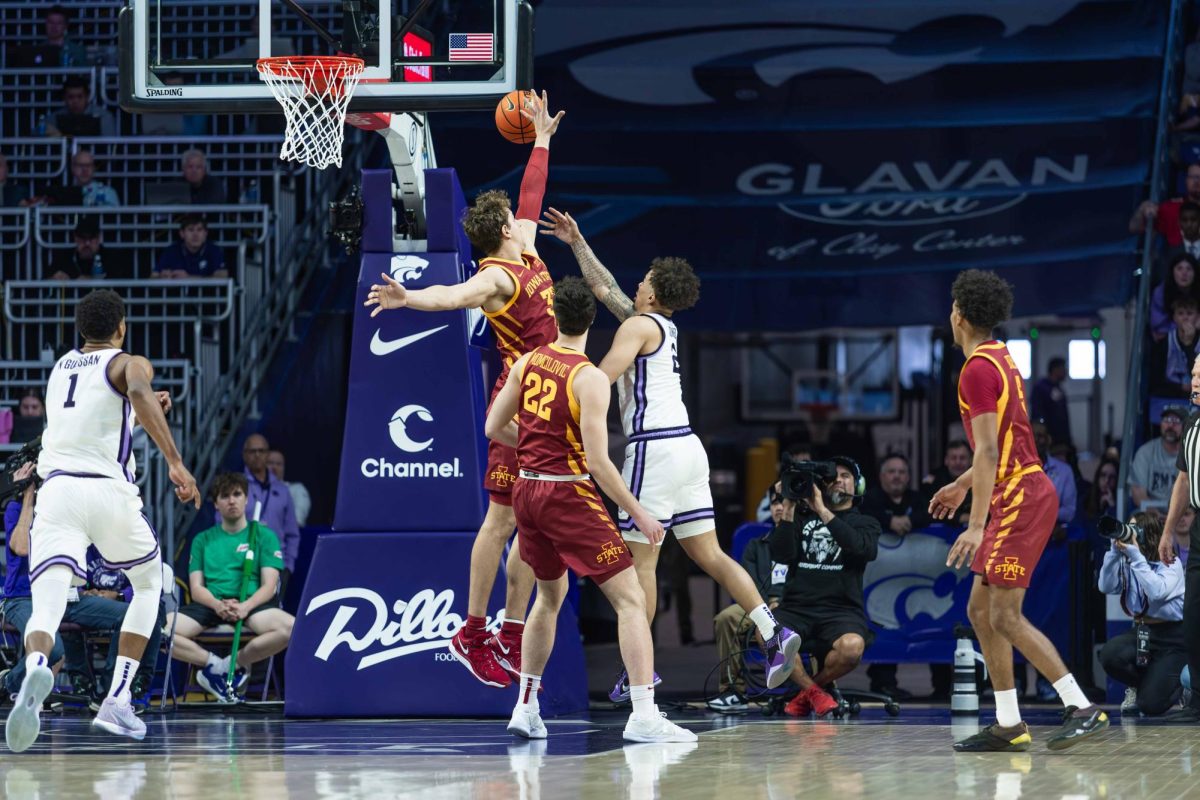MTV shouldn’t miss the opportunity to cover the war for America’s youth
March 31, 2003
Forget the fierce debate over whether war with Iraq is good or bad. Forget all of the political analysts and retired military officers strategizing on what the United States should do next. And eliminate CNN’s embedded reporters from the battlefield. What do you have left? A ground war, fought primarily by the young people of our country. The same young people who, only a few short weeks ago, were just like any of us. They listened to music. They went to movies. They partied.
So what network could possibly cover these stories of war and still keep it interesting enough for the supposedly Ritalin-fueled, attention-deprived youth of today? The answer is obvious — MTV.
What other corporation has such a large hold on the youth market to have an entire generation of people named after it?
During the first week of the war, MTV did its part in covering it. In fact, it was quite possibly the most unbiased, fair reporting of any American TV network. There were no embedded reporters caught up in the heat of battle. There were no Army generals giving their spin on how the war was progressing. Instead, we were left with Gideon Yago interviewing soldiers for an upcoming episode of “Diary.” The interviews and stories also served as lead-ins for music videos with “somber” messages. Weak coverage? Slightly. But at least it told the human-interest side of war that young people are looking for.
But this week, MTV will be doing the opposite. Instead of further educating an audience that has shown more interest in this war than any other political debate in decades, the originator of reality television will give the American public its own version of reality — reality, that is, if you were on Miami’s South Beach two weeks ago.
Executives at MTV contemplated canceling the network’s annual coverage of the drinking and debauchery that is Spring Break, but in the end, they ran it anyway.
Instead of continued coverage of their own audience battling it out on the front lines in Iraq, MTV showed sexy strangers battling it out with bikinis, whip cream and alcohol.
Apparently, war is worth covering — but only until it interferes with regularly scheduled, ratings-heavy programming like Spring Break 2003.
Should MTV really become the all-encompassing news source for everyone under the age of 25? Is there anything wrong with audiences having to change the channel to CNN when they want news on the war, and back to MTV when they want to see what’s not going wrong in the world?
Entertainment television needs to continue, if the people of this country hope to maintain any degree of normalcy in our lives. That doesn’t mean, however, that MTV war coverage should completely drop off. The coverage is still there, although much of it has been pushed to on-the-hour updates and online content. The lives of our own people have taken a back seat to fun in the sun in Florida.
There’s a stark difference between footage of soldiers in sandstorms and blondes on the beach, and it’s not a pairing that most viewers want to see. But for once in its history, MTV needs to forget about the ratings and bring the youth of America a combination of the two. Without Spring Break shows, young people will become disillusioned and negative. But without war coverage, those same young people will forget what’s really important in the world today.
MTV: bring back your war coverage. You were on the right track last week, and your coverage — regardless of how in-depth or credible it may be — was a start in educating a generation typically apathetic about world issues. And regardless of what your demographic and psychographic data may tell you, you can keep running Spring Break videos at the same time. If your audience doesn’t want to watch one or the other, they can always change the channel or — heaven forbid — go outside for a while. When the war is over and everything is back to normal, they’ll be back, I promise you.
Remember — there’s a difference between reality television and real life, and you’re very close to figuring out the difference.






